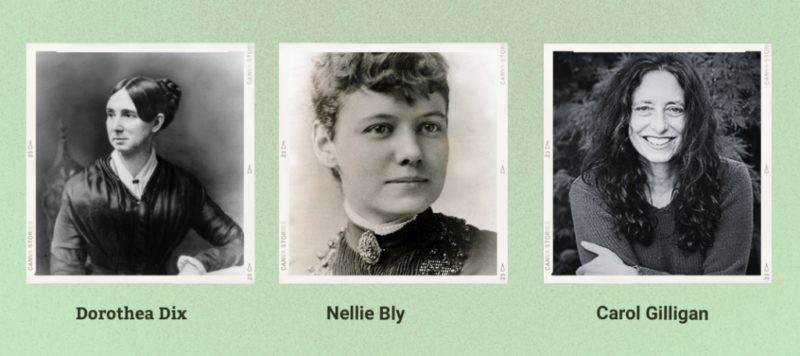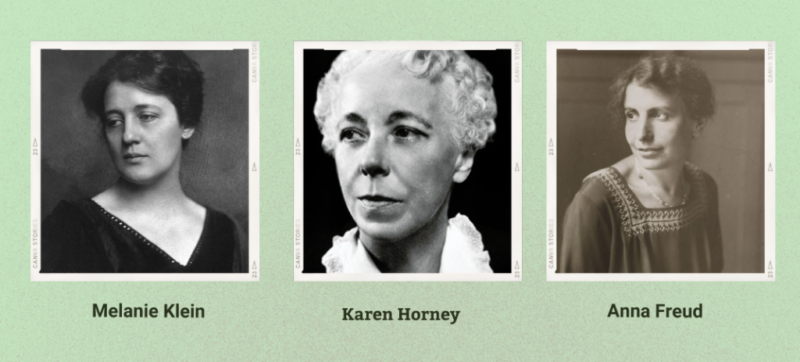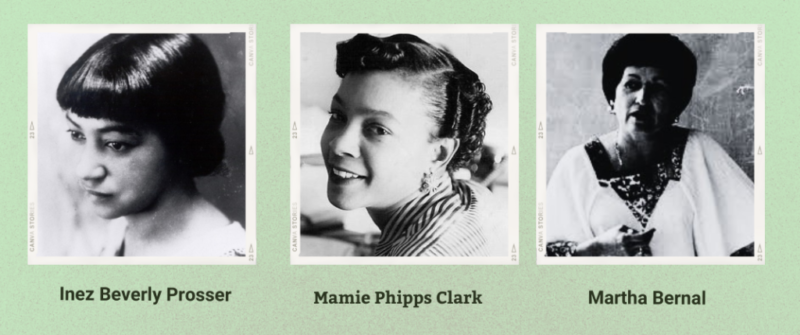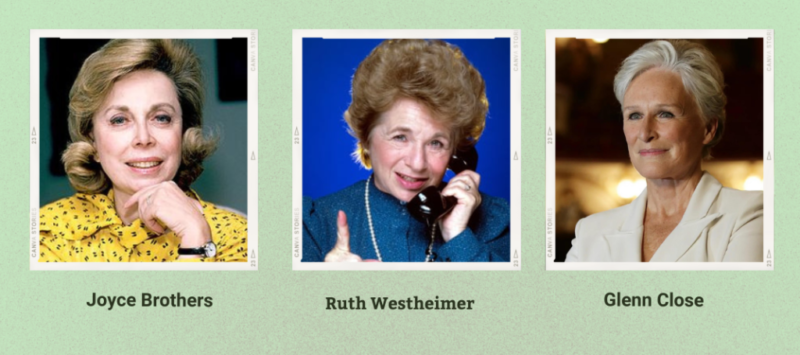When discussing the pioneers in the field of mental health, one of the first names that jumps to mind is Sigmund Freud, father of psychoanalysis. Other well-known figures might include Ivan Pavlov, who discovered Pavlovian conditioning, Emil Kraepelin, who is widely considered the founder of modern psychiatry, or Eugen Bleuler, who introduced the world to the term schizophrenia. The pattern here is obvious… they are ALL men.
The truth of the matter is, there are countless women – including Freud’s own daughter, Anna Freud – who have made equally important contributions in this arena.
In homage of Women’s History Month, we would like to acknowledge some of the incredible women who have influenced and enriched the field of mental health. They include psychologists, therapists, researchers, journalists, and public figures who – through their hard work and dedication – changed the way that clinicians work, elevated public perception of mental health, and bettered the lives of many.
Women Who made Advancements in Clinical Care
Mary Whiton Calkins (1836 – 1930): Mary was the first woman to be president of the American Psychological Association after years of discrimination in the field.
Jane Addams (1860 – 1935): Jane was the first American woman to win the Nobel Peace Prize for her work on settlement houses – and for founding social work as a profession.
Leta Stetter Hollingworth (1886 – 1939): Leta was New York City’s first female civil service psychologist and worked at Bellevue Hospital running its psychological lab. She was one of the early advocates of the field of psychology and researched women’s psychology, intelligence, and gifted children.

Dorothea Dix (1802 – 1887): Dorothea’s advocacy resulted in drastic changes in the mental health field, changing the perception that people with mental disturbances could not be cured or helped.
Nellie Bly (1864 – 1922): Nellie wrote the book Ten Days in A Mad-House which first appeared as a New York times expose and was the catalyst for lasting and widespread mental health reform.
Carol Gilligan (1936 – present): Carol stated that the Kohlberg’s Stages of Moral Development lacked gender considerations and subsequently creating the Ethics of Care framework.
Women Who made Strides in Therapy and Treatment Techniques

Melanie Klein (1882 – 1960): Melanie defined object relations theory and inventing play therapy for children.
Karen Horney (1885 – 1952): Karen founded feminist psychology (womb envy!) and expanding the discourse on neuroses and narcissism.
Anna Freud (1885 – 1982): Anna founded psychoanalytic child psychology.

Virginia Satir (1916 – 1988): Virginia is remembered for her innovation in family therapy.
Marie Nyswander (1919 – 1996): Maria developed the use of methadone for the treatment of heroin addiction, which is estimated to reduce the death rate of heroin addicts by 60 percent.
Insoo Kim Berg (1934 – 2007): Insoo pioneered Solutions-Focused Brief Therapy.

Marsha Linehan (1943 – present): Marsha created Dialectical Behavioral Therapy (DBT) and her work on borderline personality disorder.
Kay Redfield Jamison (1946 – present): Kay contributed to the understanding and treatment of bipolar disorder.
Francine Shapiro (1948 – 2019): Francine founded Eye Movement Desensitization and Reprocessing (EMDR) therapy.

Julie Gottman (1951 – present): Julie co-founded the Gottman Institute and co-creating the Sound Relationship House Theory.
Leda Cosmides (1957 – present): Leda developed evolutionary psychology.
Babbette Rothschild: Babbettee created somatic trauma therapy.
Women Who made Strides for Racial Equity in Mental Health

Inez Beverly Prosser (1897 – 1934): Inez was the first African American woman to receive a PhD in Psychology, as well as her work in education and desegregation.
Mamie Phipps Clark (1917 – 1983): Mamie researched African American schoolchildren’s self-consciousness during the desegregation period.
Martha Bernal (1931 – 2000): Martha was the first Latina to earn a PhD in Psychology as well as developing the Ethnic Identity Questionnaire.

Reiko Homma True (1933 – present): Reiko advanced mental health treatment for Asian Americans.
Tara Brach (1953 – present): Tara was dedication to radical compassion, meditation practice, and blending eastern and western wellness practices.
Angela Neal-Barnett (1960 – present): Angela’s work supported African American women who suffer from anxiety.
Women Who made Strides in Destigmatizing Mental Health

Joyce Brothers (1927 – 2013): Joyce helped destigmatize mental health by creating “pop psychology,” as well as being the first female boxing commentator.
Ruth Westheimer (1928 – present): Ruth helped destigmatize mental health by sharing her knowledge of sex therapy through TV shows, radio shows, and magazine articles.
Glenn Close (1947 – present): Glenn helped destigmatize mental health by co-founding Bring Change to Mind, a nonprofit organization dedicated to encouraging dialogue about mental health.

Carrie Fisher (1956 – 2016): Carrie helped destigmatize mental health by speaking publicly about her battle with bipolar disorder, including in her own column for The Guardian.
Brené Brown (1965 – present): Brené helped destigmatize mental health by through her widely-viewed TED talk and her many books on vulnerability, shame, empathy, and courage.
Kristen Bell (1980 – present): Kristen helped destigmatize mental health openly speaking and writing about her battles with depression and anxiety.

Hayden Panettiere (1989 – present): Hayden helped destigmatize mental health by being the unofficial spokeswoman for postpartum depression.
Demi Lovato (1992 – present): Demi helped destigmatize mental health by being a leader of Be Vocal: Speak Up for Mental Health, an initiative “encouraging people across America to use their voice in support of mental health.”
Simone Biles (1997 – present): Simone helped destigmatize mental health by sharing her story in a global mental health discussion that she started at Tokyo 2020 and continues to share advice for young athletes.


